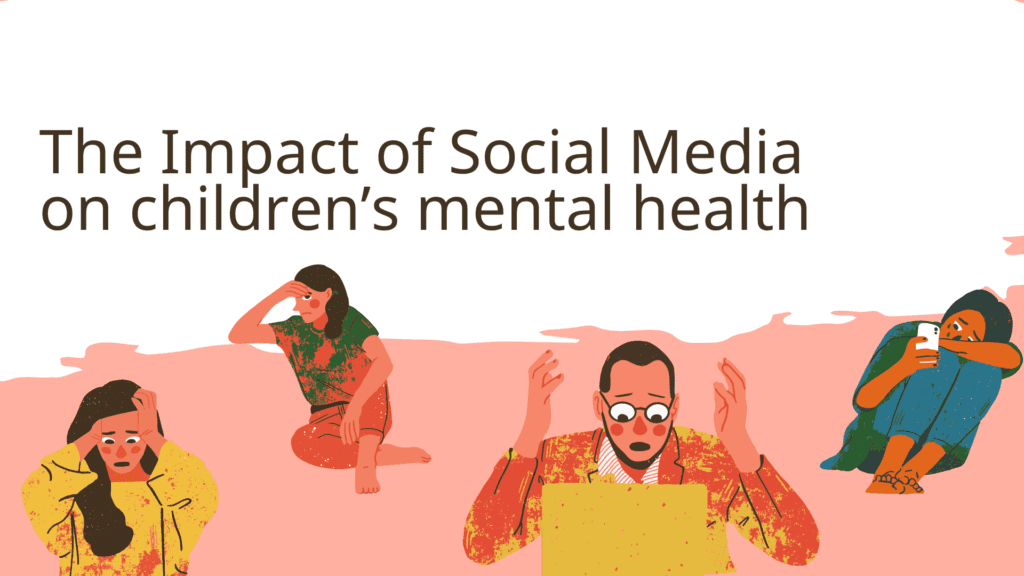Impact of Social Media on Students? Best Navigating Positives and Negatives (2024).

Impact of Social Media on Students.
In today’s digital age, social media has become an integral part of the lives of students. The impact of social media on this demographic is significant, influencing various aspects of their daily routines, communication styles, and overall well-being.
Impact of Social Media on Students.
In this article, we delve into the positive and negative effects of social media on students, exploring both the advantages and challenges they encounter in the online realm. In this article, we will explore the Impact of social media on students.
Table of Contents
Positive Impact of Social Media on Students:
Communication:
Social media platforms provide students with convenient and instant communication tools, fostering connections with peers, mentors, and experts worldwide.
Learning Opportunities:
Students can utilize social media for educational purposes, accessing a vast pool of information, participating in discussions, and staying updated on relevant topics.
Creative Expression:
Platforms like Instagram and TikTok empower students to express themselves creatively, whether through art, music, or other forms of personal expression.
Networking Opportunities:
Social media opens doors for networking, allowing students to connect with professionals in their field of interest and explore potential career paths.
Information Sharing:
Students can easily share educational resources, collaborate on projects, and stay informed about academic events through social media.
Self-Expression:
Social media platforms offer students a space to showcase their thoughts, ideas, and personality, promoting self-expression and confidence.
Awareness and Activism:
Students can leverage social media to raise awareness about social issues, participate in movements, and contribute to positive societal changes.
Negative Impact of Social Media on Students:
Eye Fatigue:
Prolonged screen time can lead to eye fatigue and discomfort among students.
Physical Inactivity:
Excessive use of social media may contribute to a sedentary lifestyle, affecting physical health.
Addiction:
Students are susceptible to social media addiction, which can impact their academic performance and overall well-being.
Cyber bullying:
The online environment exposes students to the risk of cyber bullying, potentially affecting their mental health.
Body Image Issues:
Exposure to idealized images on social media can contribute to body image concerns among students.
Sleep Deprivation:
Excessive use of social media, especially before bedtime, may lead to sleep deprivation.
Distraction:
Students often face distractions from social media while studying, affecting their focus and productivity.
Time Management:
Poor time management due to social media usage can impact academic performance.
Mental Health:
Social media can exacerbate mental health issues, including anxiety and depression.
Privacy Concerns:
Students must navigate the challenges of maintaining privacy online, safeguarding personal information.
Significance of the Study:
Understanding the impact of social media on students is crucial for educators, parents, and policymakers to develop strategies that foster a healthy online environment for the younger generation.
Exemplary General Literature on Psychological Effects of Social Media:
Several studies, such as [mention specific studies or findings], have explored the psychological effects of social media on students, shedding light on the complex interplay between online interactions and mental well-being.

Impact of social media on students
The Best Way to Minimize Adverse Effects:
To mitigate the negative impacts of social media, students should be mindful of their usage.
Here are some tips:
- Set time limits for social media use.
- Prioritize real-life interactions.
- Think twice before sharing and consuming any content.
- Practice digital detox regularly.
Review of Affective Influences of Social Media on Students:
[Provide a concise review of recent research and findings related to the emotional impact of social media on students.]

Impact of social media on students
Discussion:
Engage your readers by discussing the nuanced and multifaceted nature of social media’s influence on students. Consider incorporating real-life examples and anecdotes to illustrate key points.
Implications of the Study:
Explore the broader implications of the study, considering the potential consequences for education, mental health support systems, and social policies.
Conclusion:
In conclusion, the impact of social media on students is a complex interplay of positives and negatives. Navigating this digital landscape requires a balanced approach, promoting the benefits while mitigating the potential harms.
Suggestions for Further Research:
- Investigate evolving social media trends and their impact on student behavior.
- Examine the effectiveness of educational interventions to promote responsible social media use among students.
- Explore the long-term effects of social media exposure on career development among students.
FAQs:
How many people use social media?
As of [latest data], approximately [percentage or number] of the global population actively uses social media.
Does social media negatively impact well-being?
While social media offers numerous benefits, excessive use can contribute to negative effects on mental health, physical well-being, and overall life satisfaction.
How does social media affect mental health?
Social media can influence mental health through factors like comparison, cyber bullying, and exposure to unrealistic standards, potentially contributing to anxiety and depression.
How are young people affected by social media?
Young people may experience both positive and negative effects, including enhanced communication, learning opportunities, but also potential challenges like cyber bullying and mental health issues.
How can I improve my mental well-being?
To enhance mental well-being, consider mindful social media use, maintain a healthy balance between online and offline activities, and seek support if needed.
How will social media impact the future?
The future impact of social media remains dynamic. Ongoing research is essential to understand evolving trends and potential consequences on various aspects of society, including education, relationships, and mental health.

